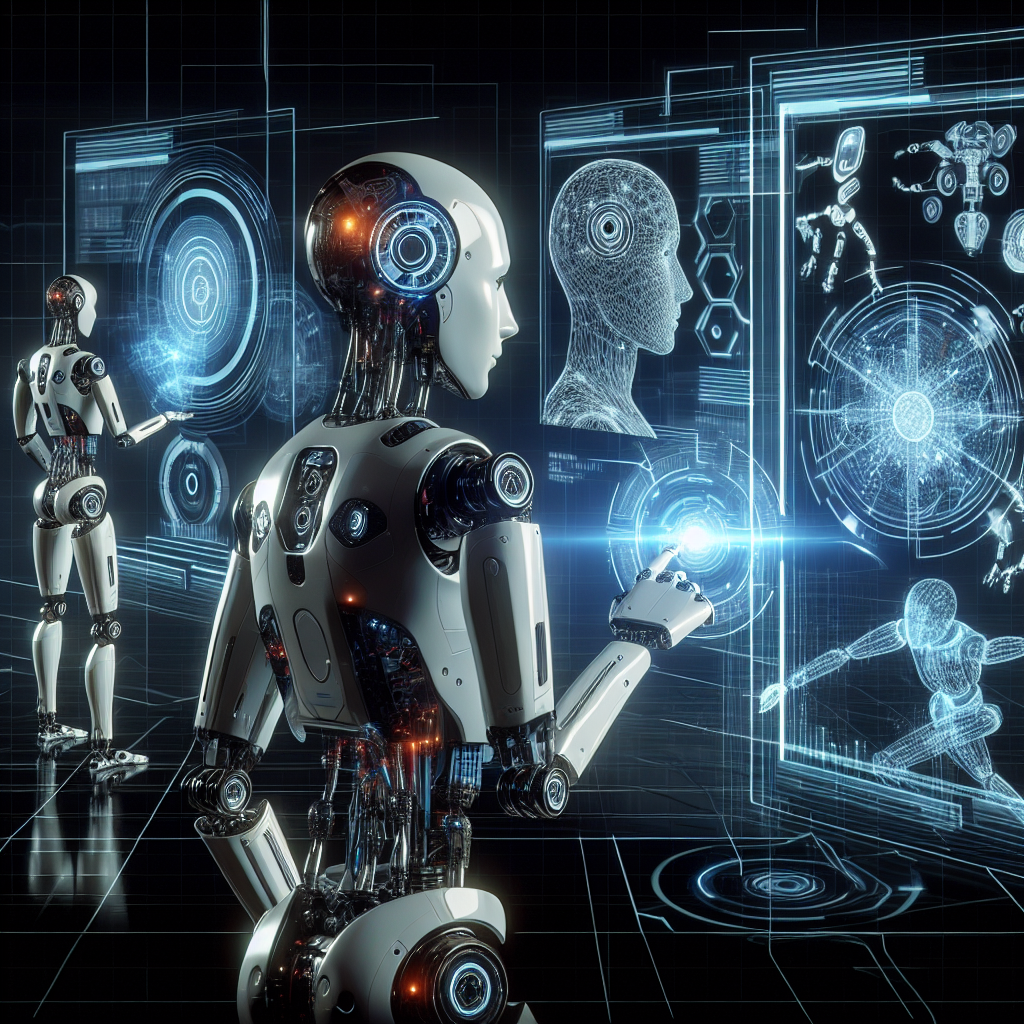The Future of AI Solutions in Robotics
Artificial intelligence (AI) has been making significant advancements in the field of robotics, with the integration of AI solutions enabling robots to perform a wide range of tasks with greater efficiency and accuracy. As AI technologies continue to evolve, the future of AI solutions in robotics looks promising, with the potential to revolutionize industries and improve the quality of life for individuals worldwide.
The integration of AI solutions in robotics has led to the development of advanced robots that can perform complex tasks with precision and speed, ranging from manufacturing and logistics to healthcare and service industries. These robots are equipped with sensors, cameras, and other technologies that enable them to perceive, analyze, and respond to their surroundings in real-time, making them more adaptable and autonomous.
One of the key benefits of AI solutions in robotics is the ability to optimize and streamline processes, leading to increased productivity and cost savings for businesses. Robots powered by AI can perform tasks more efficiently than humans, leading to improved quality, consistency, and speed of production. This has led to the widespread adoption of AI-powered robots in industries such as manufacturing, where they can handle repetitive and dangerous tasks with precision and accuracy.
In the healthcare industry, AI solutions in robotics are being used to assist surgeons in performing minimally invasive surgeries, improve patient care in hospitals, and provide support to individuals with disabilities. Robots equipped with AI technologies can analyze medical images, assist in diagnosis, and even perform surgeries with greater precision than human surgeons. This has the potential to improve patient outcomes, reduce medical errors, and enhance the overall quality of healthcare services.
AI solutions in robotics are also being used to enhance the customer experience in the service industry, with robots being deployed in hotels, restaurants, and retail stores to assist customers, provide information, and perform tasks such as cleaning and delivery. These robots can interact with customers in multiple languages, provide personalized recommendations, and handle transactions with ease, leading to improved customer satisfaction and loyalty.
As AI technologies continue to advance, the future of AI solutions in robotics looks promising, with the potential to transform industries and improve the quality of life for individuals worldwide. Some key trends shaping the future of AI solutions in robotics include:
1. Advancements in machine learning and deep learning algorithms: Machine learning and deep learning algorithms are key components of AI solutions in robotics, enabling robots to learn from data, adapt to new situations, and make decisions autonomously. As these algorithms continue to evolve, robots will become more intelligent, flexible, and capable of performing a wider range of tasks with greater accuracy.
2. Integration of AI with Internet of Things (IoT) technologies: The integration of AI solutions in robotics with IoT technologies enables robots to connect and communicate with other devices, sensors, and systems in real-time. This connectivity allows robots to gather and analyze data from multiple sources, collaborate with other robots, and coordinate their activities more effectively, leading to improved efficiency and performance.
3. Development of collaborative robots (cobots): Collaborative robots, or cobots, are robots designed to work alongside humans in a shared workspace, collaborating on tasks and sharing responsibilities. These robots are equipped with sensors and AI technologies that enable them to detect and respond to human presence, work safely in close proximity to humans, and adapt to changing environments. Cobots have the potential to revolutionize industries such as manufacturing, where they can assist human workers in performing tasks that require precision, strength, or dexterity.
4. Emphasis on ethics and responsible AI: As AI solutions in robotics become more advanced and autonomous, there is a growing emphasis on ethics and responsible AI practices to ensure that robots operate safely, ethically, and in accordance with legal and regulatory requirements. This includes developing transparent and accountable AI systems, ensuring data privacy and security, and addressing concerns around job displacement and social impact.
5. Focus on human-robot interaction and collaboration: The future of AI solutions in robotics will also focus on enhancing human-robot interaction and collaboration, enabling robots to understand and respond to human gestures, facial expressions, and emotions. This will enable robots to work more closely with humans, provide support and assistance when needed, and adapt to the preferences and needs of individuals.
FAQs
Q: What industries are benefiting the most from AI solutions in robotics?
A: Industries such as manufacturing, healthcare, logistics, and service are benefiting the most from AI solutions in robotics, with robots being used to perform a wide range of tasks with greater efficiency and accuracy.
Q: How are AI solutions in robotics improving the quality of healthcare services?
A: AI solutions in robotics are being used in healthcare to assist surgeons in performing surgeries, analyze medical images, and provide support to individuals with disabilities, leading to improved patient outcomes and the overall quality of healthcare services.
Q: What are some key trends shaping the future of AI solutions in robotics?
A: Some key trends shaping the future of AI solutions in robotics include advancements in machine learning and deep learning algorithms, integration with IoT technologies, development of collaborative robots, emphasis on ethics and responsible AI, and focus on human-robot interaction and collaboration.
Q: How can businesses benefit from AI solutions in robotics?
A: Businesses can benefit from AI solutions in robotics by improving productivity, reducing costs, enhancing quality, and providing better customer service. Robots powered by AI can perform tasks more efficiently than humans, leading to increased efficiency and competitiveness in the market.
Q: What are some ethical considerations related to AI solutions in robotics?
A: Some ethical considerations related to AI solutions in robotics include ensuring transparency and accountability in AI systems, protecting data privacy and security, addressing concerns around job displacement, and promoting responsible AI practices to ensure that robots operate safely and ethically.

